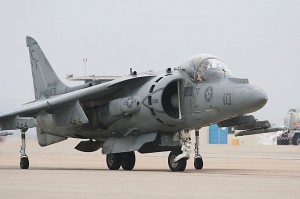
From USNI (http://blog.usni.org/2012/09/22/the-real-loss-in-afghanistan), really all I can say is that I would love every minute of working for a command that really embodies this sort of command guidance. Very powerful words below.
From: Commanding Officer, Marine Attack Squadron 211
To: Squadron Attack Pilots
Subj: COMMANDER’S GUIDANCE FOR SQUADRON ATTACK PILOTS
1. Professional hunger.
My goal is to identify those Officers who want to be professional attack pilots and dedicate the resources required to build them into the flight leaders and instructors that are required for the long-term health of our community. This is not a socialist organization. We will not all be equal in terms of quals and flight hours. Some will advance faster than others, and because this is not a union, your rate of advancement will have nothing to do with seniority. Your rate of advancement will instead be determined by your hunger, professionalism, work ethic, and performance.
If flying jets and supporting Marines is your passion and your profession, you are in the right squadron.
If these things are viewed simply as your job, please understand that I must invest for the future in others. Your time in a gun squadron might be limited, so it is up to you to make the most of the opportunities that are presented.
2. Professional focus.
Our approach to aviation is based upon the absolute requirement to be “brilliant in the basics.”
Over the last few years Marine TACAIR has not punted the tactical nearly so often as the admin. Sound understanding of NATOPS, aircraft systems, and SOPs is therefore every bit as important as your understanding of the ANTTP and TOPGUN. With this in mind, ensure the admin portions of your plan are solid before you move onto objective area planning. Once you begin tactical planning, remember that keeping things “simple and easy to execute” will usually be your surest path to success. If the plan is not safe, it is not tactically sound.
3. Attitude.
I firmly believe in the phrase “hire for attitude, train for skill.”
Work ethic, willingness to accept constructive criticism, and a professional approach to planning, briefing, and debriefing will get you 90% of the way towards any qualification or certification you are pursuing. The other 10% is comprised of in-flight judgment and performance, and that will often come as a result of the first 90%. Seek to learn from your own mistakes and the mistakes of others. Just as a championship football team debriefs their game film, we are going to analyze our tapes and conduct thorough flight debriefs. It has often been said that the success of a sortie is directly proportional to the caliber of the plan and brief. The other side of this coin is that the amount of learning that takes place as a result of a sortie is directly proportional to the caliber of the debrief.
4. Moral courage.
Speak up if something seems wrong or unsafe.
We all know what the standards are supposed to be in Naval Aviation and in the Corps. Enforce them! When we fail to enforce the existing standards, we are actually setting and enforcing a new standard that is lower.
5. Dedication.
If you average one hour per workday studying, 6 months from now you will be brilliant. That is all it takes; one hour per day. As you start to notice the difference between yourself and those who are unable to find 60 minutes, I want you to know that I will have already taken note.
Then, I want you to ask yourself this question: “How good could I be if I really gave this my all?”
6. When all else fades away, attack pilots have one mission: provide offensive air support for Marines.
The Harrier community needs professional attack pilots who can meet this calling.
It does not require you to abandon your family. It does not require you to work 16 hours per day, six days per week. It requires only a few simple commitments to meet this calling: be efficient with your time at work so that you can study one hour per day; be fully prepared for your sorties and get the maximum learning possible out of every debrief; have thick skin and be willing to take constructive criticism; find one weekend per month to go on cross country. When you are given the opportunity to advance, for those few days go to the mat and give it your all, 100%, at the expense of every other thing in your life.
To quote Roger Staubach, “there are no traffic jams on the extra mile.”
If you can be efficient during the workweek, give an Olympian effort for check rides and certifications, and are a team player, the sky will literally be the limit for you in this squadron.
C. K. RAIBLE